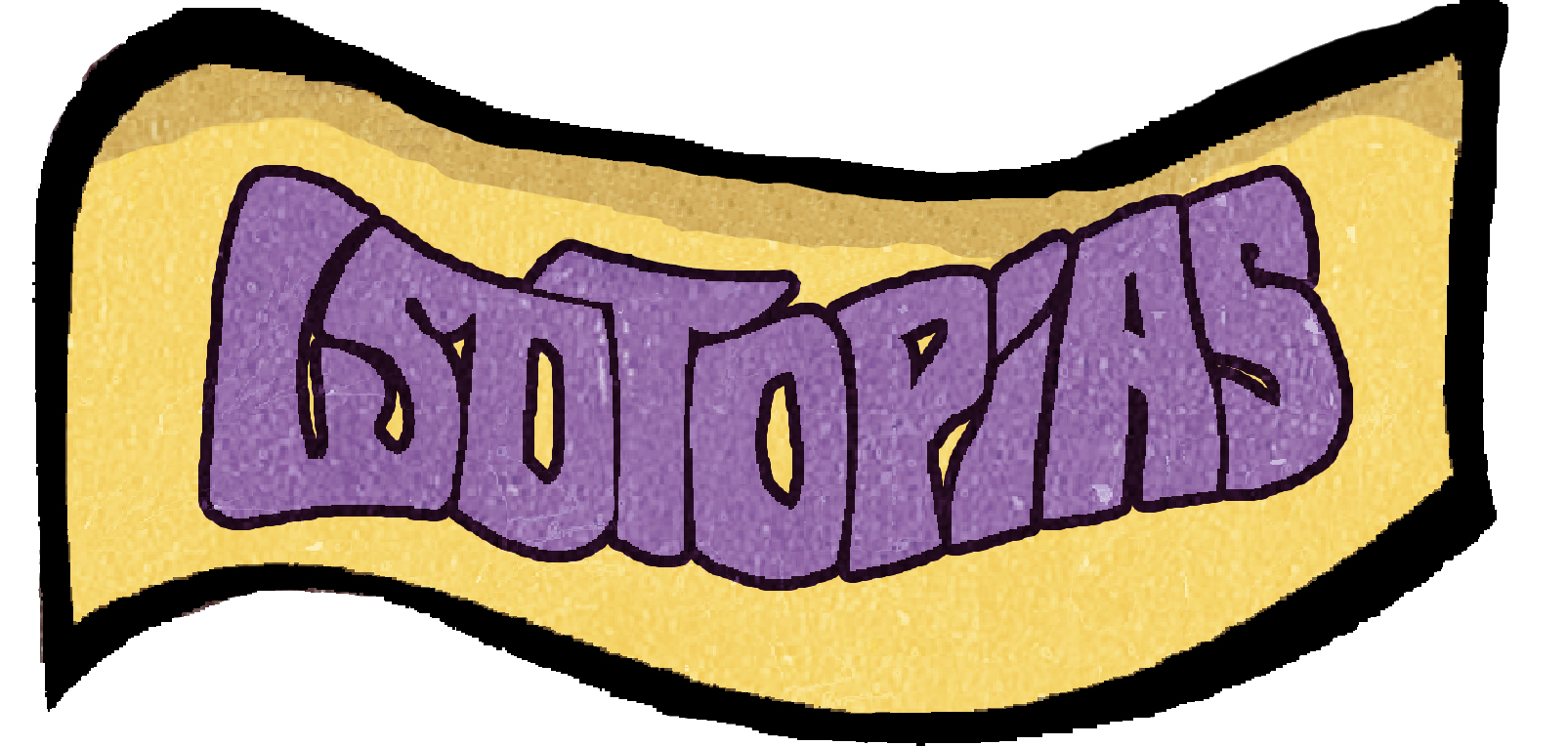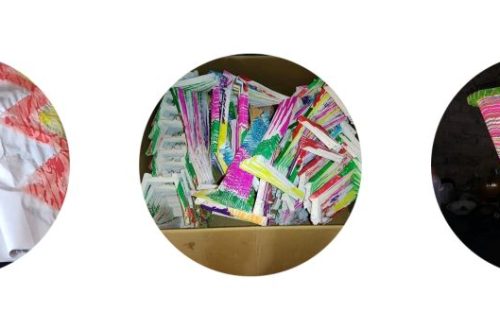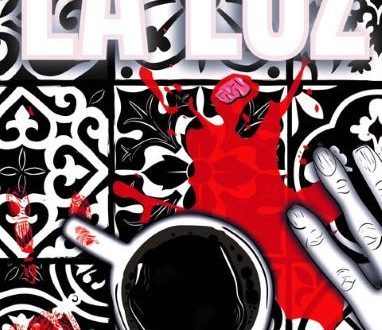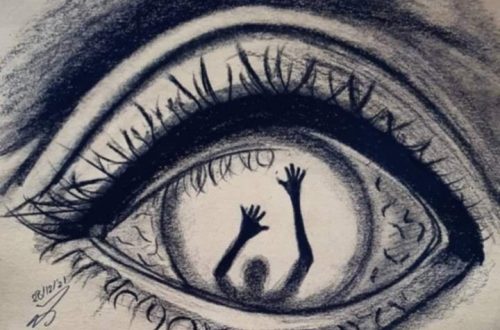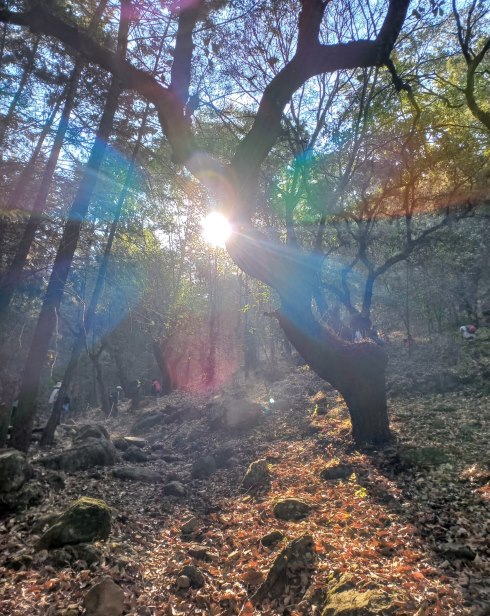
FÉLIX
para felipe y marta
MEXALA es amarilla. la gente es de color marrón amarillento y camina sobre tierra amarilla. las casas de caña o de adobe se vuelven amarillas bajo el sol y las montañas también se vuelven amarillas cuando cae el atardecer. después se vuelven moradas, un gemido, un estallido de púrpura cada noche, el único otro color en ese prisma caluroso. los turistas conocen a guerrero por acapulco, donde se recuestan bajo otro tipo de sol, donde los verdes y los azules son el puerto de su mundo.
mexala está a siete horas a caballo desde la carretera principal, entre iguala y acapulco. los turistas no van allí, tampoco nadie más. los nativos no hablan mucho español. desde la conquista, han pintado iglesias y animales y flores y personas en platos y vasijas de barro amarillo marrón, que, desde las montañas, bajan para vender. los cuecen ligeramente en hornos toscos y más de la mitad se rompen durante el viaje. lo que ganan con la otra mitad, reemplaza la cosecha de maíz y frijol.
hace tres años un pintor llamado mathías arribó a esa región y les propuso pintar sobre papel, un papel de corteza tosca que parece hecho a mano pero que en realidad se vende en una fábrica en las afueras de la ciudad de méxico, a 600 kilómetros de distancia. ahora llevan sus dibujos irrompibles en sus viajes de venta periódicos. en greenwich village los dibujos se venden muy bien.
entre greenwich village y mexala, cuatro siglos no han pasado y sólo han gritado en voz baja y esporádica. en greenwich village la gente compra los dibujos y se cree que están a la moda de una manera primitiva. quizás les sorprendería saber que en mexala existe un estrato de artistas similar, una sociedad de pintores similar a la que existe en ese fragmento de la gran ciudad de nueva york.
en mexala hay artistas verdaderos, como crispino, que inventan nuevas formas, que cambian, que crean estilos que los demás artistas siguen, hay pintores como félix que manejan muy bien las formas existentes y se ganan la vida en el mercado. y hay copistas que rellenan los colores de los bocetos creados por sus amigos más talentosos. si los turistas no pueden distinguir una pintoresca obra maestra de otra, probablemente no podrían hacerlo mejor en el museo de arte moderno de nueva york. pero todos los artistas de mexala venden muy bien en el mercado actual: es cuestión de oferta y demanda. la oferta proviene de mexala y gran parte de la demanda está en greenwich village, nueva york.
en mexala la casa de félix está aquí y la casa de crispino está justo aquí y pablo, el hermano de félix, tiene su casa allá. es un triángulo muy espaciado y la carretera 〜la pista para caballos〜 hace una curva pasando las tres casas que están en una colina sobre los campos. durante cincuenta años, entre cosecha y siembra, hombres como félix, pablo y crispino han hecho sus viajes a la ciudad de méxico. han abandonado sus hogares y se han ido a caballo o en mula a iguala y en autobús a la capital para vender su cerámica. ahora, antes de volver, hacen el mismo viaje, vendiendo sus dibujos en el papel de corteza que compran con una parte de las ganancias. siempre vienen a ver a mathias a la ciudad, dos veces al año.
en casa de mathias se sientan, guardan silencio durante veinte o treinta minutos. fuman, félix dice 〜bueno mathias, la cosa va bien. su español ha mejorado en los últimos dos años. tiene veintisiete años. crispino todavía habla en náhuatl. sus amigos le traducen. él es un poeta. una vez sostuvo la mano de mathias alrededor del bolígrafo con tallo de bambú y trazó una flor en el papel de corteza〜así. así es como se hace. su mano larga es dos veces más grande que la de mathias. los dedos se extienden al menos veinte centímetros desde su base. en la parte superior, destacan enormes nudos sobre las uniones negras. debajo, las palmas son blancas y tiernas.
hace tres meses, félix vino solo a ver a mathias. no vino a vender dibujos. después de un cigarrillo y un largo silencio dijo 〜es una cosa triste. es una cosa mala, mathias, lo que pasó. he matado a un hombre. ahora yo también soy un hombre, mathias, no porque haya matado sino porque he sufrido. antes era chiquito. ahora soy grande. ojalá no fuera yo quien tuvo que hacerlo.
〜en mis viajes estaba preocupado. siempre preocupado. mi esposa no estaba sola en la casa. tenía una amiga que se quedaba con ella cuando yo me iba. pero en las noches empezaron unos golpes en la puerta, una luz de pilas entre los adobes, un llamado, un suave llamado para que saliera. ella no salía, lo sé. este hombre molestaba a muchas mujeres del pueblo. todos lo sabían. le dije a mi amigo, tendré que matarlo.
〜primero compré una 22. practiqué en las colinas, luego compré una 32. finalmente compré una 45 que me lastimó el hombro, pero con esa aprendí a disparar con la cadera. he aprendido. le dije a mi amigo, tendré que matar a ese hombre.
〜cuando regresé la última vez no volví a mi casa. subí al corral. ya estaba oscuro. durante horas estuve tirado en el techo del corral con la 45 en la mano. nada se movía, no se oía ningún sonido. entonces vi la figura de un hombre descender entre el maguey. iluminó la puerta de mi casa con su luz. era una luz de batería. dije, ¿quién anda ahí? no respondió. corrió hacia la carretera. ya sabes, la carretera arriba de los campos, me escondí y salté cuando vi la sombra de su figura moverse. la bala entró por la base de su espina dorsal y salió por su boca. fui a ver y vi que era mi amigo. fui a mi casa y le dije a mi esposa, lo he matado. está bien, me contestó.
viajé hasta iguala y pasé la noche. cuando regresé al día siguiente, fui a la casa de un amigo. sabía que la policía me estaría buscando. mi hermano pablo vino a decirme que me fuera. el pueblo ya está cosechando, esperarán. pero cuando las cosechas salgan, van a enjuiciar, la familia del muerto sabe lo que hizo. todo el mundo sabe. había molestado a muchas mujeres. pero la familia exigir buscar justicia, es su hijo. y la ley debe actuar, es la ley. cuando llegue la cosecha, pedirán justicia y querrán dinero, la familia, la policía. mi padre y mis hermanos me ayudarán a recaudar 10.000 pesos. venderán sus tierras, sus animales, venderán sus pinturas. todo. venderé mis cuadros también. pero no puedo volver a mexala hasta que se recaude el dinero.
y entonces félix se quedó con mathías en la ciudad de méxico. se mantuvo callado. reservado, esperó. sabía que mathías tenía menos dinero que él para mantener a su familia y por las noches salía a comprar tamales para todos. a los niños les enseñó algunas palabras en náhuatl. a veces, le habló a mathías como los hombres se hablan entre sí, tanto en las calles de greenwich village como en las montañas de guerrero. su padre vino una vez a visitarlo. era un hombre pequeño, como una hoja de palma, e igual de frágil. nunca había estado en la ciudad. nunca había visto los coches ni los edificios, los focos eléctricos ni los baños. estaba muy triste. se quedó una noche y luego se fue a un hotel para no molestar a la familia. le dijo: tu esposa y tus hijos están bien. esperaremos la cosecha. no desequilibres tu mente. estamos recaudando el dinero, y se fue.
llegó crispino. Dijo 〜recuerdo la noche. yo también estaba sentado junto a mi corral. junto a una flor blanca. es triste para félix tener que haber sido él quien matara.
los días vinieron, se quedaron y se fueron. mathias frenó su trabajo una noche cuando félix llamó a la puerta de su estudio. encendieron cigarrillos y se dispusieron a hablar.
〜tuve un sueño, mathías, dijo félix. 〜soñé que regresaba a mi pueblo. el sol estaba alto y amarillo. lo has visto. sabes. llegué hasta donde estaba un grupo de amigos, formando un círculo. uno de ellos me atacó con un cuchillo. no sé por qué me atacó. él era mi amigo. lo dominé y le arrebaté el cuchillo de su mano. se escapó muy lentamente. corrió muy lentamente. fue fácil para mí atraparlo y me quedé arriba con el cuchillo en la mano. luego me alejé. no quiero volver a matar.
félix era un niño hace seis meses, no bebía mucho con los hombres, porque en su corazón, era un niño y se sentía como un niño. chiquito. ahora bebe con los hombres. su rostro ha cambiado. hay sombras, hay menos amarillo. él es un hombre ahora. no porque haya matado sino porque ha sufrido. grande. en greenwich village pudo haber quemado su tarjeta de reclutamiento. ha violado la ley, pero había hecho lo que tenía que hacer. pagará el precio y se irá a casa.
*
FELIX
for felipe and marta
MEXALA is yellow. the people are yellow brown and they walk on yellow earth. houses of reed or adobe grow yellow in the sun and the mountains too are yellow as the sun goes down. then they turn purple, a moan, a deathrow of purple every night, the only other color in that hot prism. the tourists know guerrero for acapulco where they lie in another kind of sun, where greens and blues are port of their world.
mexala is seven hours by horseback from the main road, between iguala and acapulco. tourists do not go there and no one else goes there either. the indians do not speak much spanish. since the conquest they have painted churches and animals and flowers and people on yellow brown clay dishes and pots which they come down from the mountains to sell. they are lightly baked in crude ovens and more than half break on the trip. what they earn from the other half suplants the harvest, corn and beans.
three years ago a painter called mathias came into that region and suggested they paint on paper, a crude bark paper which looks hand-made but is actually sold in a factory on the outskirts of mexico city, 600 kilometers away. now they take their unbreakable drawings on their periodic trips of sale. in greenwich village the drawings are selling very well.
between greenwich village and mexala four centuries have not moved and have only cried out in low, sporadic voice, in greenwich village people buy the drawings and think they’re hip in a primitive way. they would be surprised, perhaps, to know that in mexala there is a similar strata of artists, a similar society of painters as exists in theat fragment of greater new york city.
in mexala there are real artists, like crispino, who invent new forms, who change, who create styles the other artists follow, there are painters like felix who handle the existing forms very well and make a living from the market. and there are copysts who fill in the colors on outline drawings made by their more talented friends. if the tourists cannot tell one quaint masterpiece from another, they would probably do no better in new york’s museum of modern art. but all mexala’s artists sell very well in the current market: it is a matter of supply and demand. the supply comes from mexala and much of the demand is in greenwich village, new york.
in mexala felix’s house is here and crispino’s house is just here and pablo, felix’s brother, has his house over there. it is a widely spaced triangle and the road -the horse track- makes a curve past the three houses on a ridge above the fields. for fifty years, between harvest and planting, men like felix and pablo and crispino have made their trips to mexico city. they have left their homes and gone by horse or mule to iguala and by bus to the capital to sell their pottery. now they make the same trip, selling their drawings on the bark paper they buy with a portion of the profits just before returning each time. twice a year, they always come to see mathias in the city.
in mathias’ house they sit down, are silent for twenty or thirty minutes. they smoke felix says ~ well mathias, things are going well. his spanish has become better in the last two years. he is twenty-seven. crispino speaks in nahuatl still. his friends translate for him. he is a poet. once he held mathias’ hand around the bamboo stem pen and traced a flower on the bark paper -there. that is the way. his long hand is twice the size of mathias’. the fingers stretch at leat eight inches from their base. on top huge knots stand out on the black joints. beneath, the palms are white and tender.
three months ago felix came alone to see mathias. he did not come to sell drawings. after a cigaret and a long silence he said -it is a sad thing. it is a bad thing, mathias, what had happened. i have killed a man. i am a man myself now, mathias, not because i have killed but because i have suffered. before i was chiquito. now i am grande. would that it was not me who had to do it.
~on my trips i was worried. always worried. my wife was not alone in the house. she had a friend to stay with her when i was goine. but in the nights thre started a pounding on the door, a battery light between the adobes, a calling, a soft calling for her to come out. she did not come out i know. this man was bothering many women in the village. everyone knew. i said to my friend, i will have to kill him.
~i bought a 22 first. i practiced in the hills, then i bought a 32. finally i bought a 45 that hurts the shoulder, but i learned to shoot from the hip with that. i learned. i told my friend, i will have to kill that man.
~when i came back last time i did not go to my house. i went up to the corral. already it was dark. for hours i lay on the roof of the corral with the 45 in my hand. nothing moved, there was no sound. then i saw the figure of a man move down between the maguey. he lit the door of my house with his light. it was a battery light. i called out, who goes there? he did not answer. he ran, up toward the road. you know the road, above the fields, i jumped down and shot up at his moving figure. the bullet entered the base of his spne and came out his mouth. i went to look and saw it was my friend. i went to my house and said to my wife, i have killed him. it is well, she said.
~i rode to iguala and stayed the night. when i returned the next day i went to the house of a friend. i knew the polica would be looking for me. my brother pablo came to tell me to go. the village is in harvest now, they will wait. but when the crops are in they will prosecute, the family of the dead man knows what he did. everyone knows. he had bothered many women. but the family must prosecute, it is their son. and the law must act, it is the law. when the harvest is in they will prosecure and they will want money, the family, the police. my father and my brothers will help me raise 10,000 pesos. they will sell their land, their animals, they will sell the paintings. everything. i will sell my paintings too. but i cannot go back to mexala until the money is raised.
and so felix stayed with mathias in mexico city. he was very quiet. he kept to himself, he waited. he knew mathias had less money than he with which to keep his family, and at night he would go out and buy tamales for them all. he taught a few words of nahuatl to the children. he spoke sometimes, to mathias, as men speak to each, in the streets of greenwich village or the mountains of guerrero. his father came once, to visit him. he was a small man, like a palm leaf, and as fragil. he had never been to the city.
he had never seen the cars and the buildings, the electric light bulbs and the toilets. he was very sad. he stayed one night, then he went to a hotel so as not to bother the family. he said ~your wife and children are well. we will wait for the harvest. do not balance your mind. we are raising the money, and he left.
crispino came. he said ~i remember the night. i. too, was sitting by my corral. beside a white flower. it is sad for felix he had to be the one to kill.
the days came and stayed and went. mathias stopped his work one night when felix knocked on the door of his studio. they lit cigarets and prepared to speak.
~i had a dream, mathias, felix said ~i dreamed that i went back to my pueblo. the sun was high and yellow. you have seen it. you know. i came to where a group of friends were standing, in a circle. one of them attacked me, with a knife. i do not know why he attacked me. he was my friend. i overpowered him and took the knice from his hand. he ran away very slowly. very slowly he ran. it was easy for me to catch him and i stood above with the knife in my hand. then i walked away. i do not want to kill again.
felix was a boy six months ago, he did not drink often with the men because he was a boy in his heart and he felt like a boy. chiquito. now he drinks with the men. his face has changed. there are shadows, there is less yellow. he is a man now. not because he killed but because he has suffered. grande. in greenwhich village he might have burned his draft card. he has broken the law but he had done what he had to do. he will pay the price and go home.
*Margaret Randall. El corno emplumado / The plumed horn, núm. 21 (1967), pp. 83-86.
Traducción al español de Yasmín Rojas
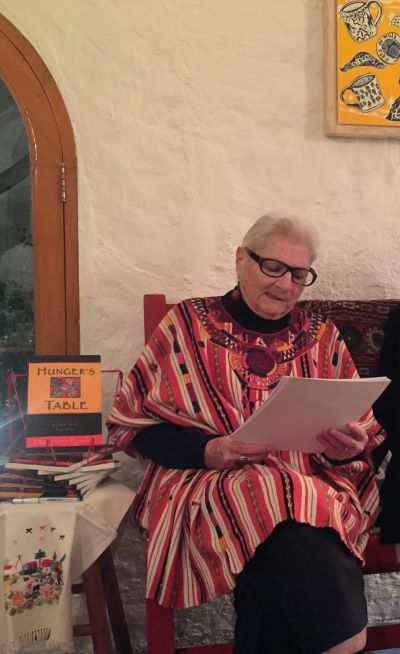
Margaret Randall (Ciudad de Nueva York, 6 de diciembre de 1936) es poeta, escritora, fotógrafa, militante feminista y activista social. Es autora de más de 200 libros de poesía, ensayo e historia oral. Entre sus publicaciones más recientes se encuentran: Artists in my life (2022), I never left home: poet, feminist, Revolutionary (2020), Vertigo of risk (2023), She Becomes Time (2016), As If the Empty Chair / Como si la silla vacía (2011). Ha sido recipiente del premio PEN Dorothy Doyle Lifetime Achievement por su escritura y su activismo en derechos humanos, la Medalla de Mérito Literario (otorgado por Literatura en el Bravo, Chihuahua, México), y la Medalla Haydée Santamaría (entregada por Casa de las Américas, La Habana, Cuba). Durante la década de los años sesenta, Randall y Sergio Mondragón (Cuernavaca, Morelos, 14 de agosto de 1935), fundaron, redactaron, dirigieron y editaron 31 números de El Corno Emplumado / The Plumed Horn (1962-1969). Fue una publicación bilingüe (español/inglés), de arte y literatura, cuya finalidad era facilitar un intercambio cultural entre los países de lengua hispana e inglesa; difundir los ideales pacifistas de la época, venidos de una marcada conciencia social; y contribuir a un acercamiento entre los escritores latinoamericanos y norteamericanos.
*
Fotografía de portada por Itzel Cabrera
Fotografía de biografía por Yasmín Rojas


